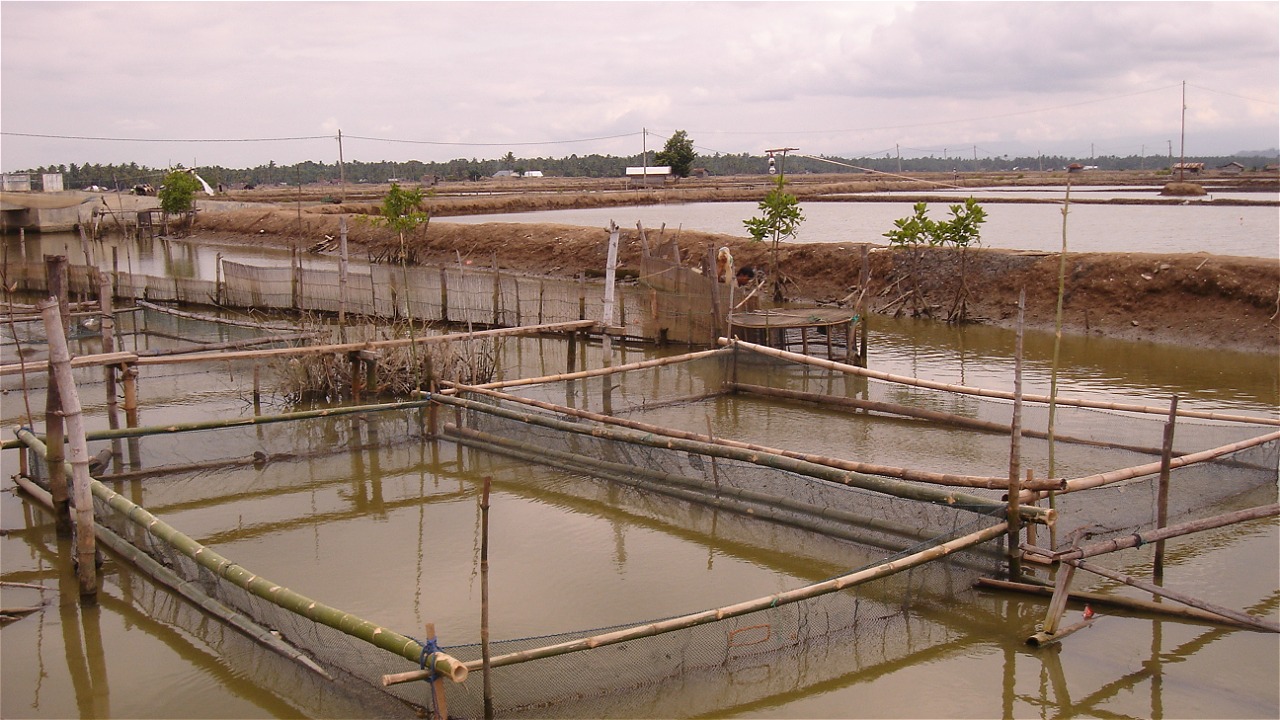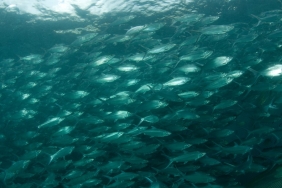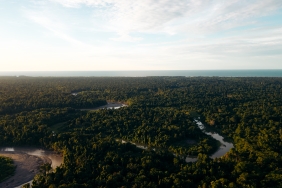THIRD POND SCHOOL: SOCIALIZATION OF CBIB CERTIFICATION
Authors: Idham Malik (Aquaculture Officer, WWF-Indonesia) and Abdillah Yunus (Lowita Minapolitan Area AIP Local Facilitator, Pinrang Regency)
WWF-Indonesia Aquaculture Program held the third meeting of the Minapolitan Area Pond School in Pinrang Regency on Monday, February 8, 2016. The theme this time was "Strengthening the Legality Aspects, especially the Application of Good Fish Cultivation Methods (CBIB)". Pond School invited Ir. Nurdin, Head of Cultivation of Marine and Fisheries Service (DKP) Pinrang District, as the authority and its capacity as an auditor of CBIB certification assessment. This activity was attended by 19 participants, consisting of WWF-Indonesia assisted farmers and aquaculture extension workers. The purpose of this meeting was to provide an in-depth understanding to the farmers about the importance of CBIB certification fulfillment. This is important because it turns out that many farmers do not really understand the CBIB rules. In addition, there are no assisted farmers who have obtained CBIB certificates.
In his material, Ir. Nurdin explained about the laws related to CBIB and the requirements for obtaining a CBIB certificate. He said that business units and aquaculture groups only need to apply for CBIB certification to the Director General of Aquaculture (DJPB) by attaching a business license, general data of the fish rearing business unit, a list of facilities available at the cultivation site, a list of work procedures in the form of recording the cultivation process, the number of workers, and a layout drawing of the cultivation site. After the application is received by DGT, the DGT team together with the Marine and Fisheries Service (DKP) conducts a document audit and visit to evaluate the validity of the data. The aquaculture group will then be contacted to provide the survey results and additional guidance. Ir. Nurdin urged aquaculture groups that do not yet have a CBIB certificate to apply for the certificate as soon as possible to anticipate global market demand.
The fulfillment of CBIB certification by WWF-Indonesia assisted farmers is a strategic step before farmers obtain global level certification such as the Aquaculture Stewardship Council (ASC). Because in ASC there are indicators of compliance with national and local regulations; CBIB is one of the important rules from the government.
After the third Pond School meeting, WWF-Indonesia field team will immediately move to encourage Phronima group members to complete the required documents to be submitted to DKP. In addition, the team will also accompany the DKP field team to conduct an initial assessment of the proposed pond site.
Knowing CBIB Closer
CBIB is an aquaculture certification from the Government of the Republic of Indonesia so that aquaculture practices are in accordance with national and international standards. CBIB certification has been discussed since 2004, then finalized with guidance from the Ministry of Maritime Affairs and Fisheries (KKP) by the European Union's Trade Support Program (TSP) 1 team. Therefore, this certificate also refers to the EURO GAP standard which prioritizes aspects of food safety and food quality assurance in the cultivation process. CBIB has officially become a government regulation since the issuance of the Decree of the Minister of Marine Affairs and Fisheries (Kepmen KP) Number 02 of 2007 concerning CBIB and strengthened by the Regulation of the Minister of Marine Affairs and Fisheries (Permen KP) Number 19 of 2010 concerning Control of Quality Assurance System and Safety of Fishery Products.
There are several important points in CBIB, namely 1) Pay attention to food safety for products by paying attention to sanitation; 2) The location of the fishery business is far from agricultural land; 3) The incoming water does not contain harmful chemicals, heavy metal residues and pathogenic organisms. The assessment process starts from the protection of disease-stricken fry, the use of environmentally friendly inputs, minimization of pollution, good harvest and post-harvest processes and free from disease. CBIB is a guarantee for consumers, that the shrimp is obtained from a process that meets food safety qualifications.
Since 2011, the Director General of Aquaculture - KKP invited various parties, including WWF-Indonesia, to conduct a review to strengthen the content of CBIB with elements of managing environmental aspects, social aspects, and product traceability. This is done so that CBIB certification will be aligned with various regional certification schemes and international markets that are more complex than just food safety.





